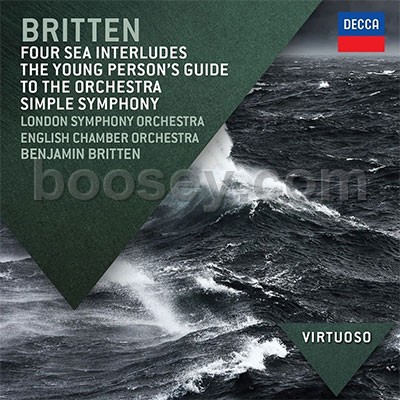

For some time the dénouement had Grimes on the marshes, going mad and dying there. At first, Britten had Grimes murdering his apprentices rather than being at worst negligent. Pears persuaded Britten to play down any emotional tie Grimes might feel to the apprentice, and play up his position as an outsider in an intolerant society. For a long time during the gestation of the work Britten conceived Grimes as a baritone role. The story, and Grimes's character, underwent substantial changes in the early stages of drafting. London: 1943−1945 ĭuring the voyage back to England, Pears continued to work on the scenario of the opera while Britten composed A Ceremony of Carols and Hymn to St Cecilia. Pleading pressure of work and some reservations about the effectiveness of the subject, Isherwood declined. Britten approached his friend the writer Christopher Isherwood, inviting him to write the libretto. The fee was $1,000, and the opera was to be dedicated to the memory of Koussevitzky's wife, who had recently died. Koussevitzky arranged for the commissioning of the opera by the musical foundation he had recently set up. Britten explained that doing so would necessitate putting all other work aside, which he could not afford to do. While Britten and Pears were waiting for a passage back to England, the conductor Serge Koussevitzky asked the composer why he had not written an opera. The Rector, Swallow, and the proprietress of the Boar inn, "Auntie", and her nieces derive from other sections of The Borough, but other characters in the opera, including Balstrode, Boles and Ned Keene, are not in Crabbe's original. In Crabbe's poem, Ellen Orford's tale is completely separate from Grimes's and they are not mentioned as meeting each other. He works alone until the ghosts of his victims begin to terrorise him and he sinks into madness and dies in bed.

Three of his apprentices in succession have died before he is summoned to the Town Hall to account for his conduct, after which he is forbidden to employ another. The Grimes of Crabbe's poem is an outright bully, "untouched by pity, unstung by remorse and uncorrected by shame". įrom the outset the characters and story of the libretto were only loosely based on Crabbe's work. He and Pears began sketching an operatic scenario drawing on The Borough. He said later, "In a flash I realised two things: that I must write an opera, and where I belonged". Pears found a copy of Crabbe's works in a second-hand bookshop and Britten read the poem The Borough, which contained the tragic story of the Aldeburgh fisherman Peter Grimes. Britten was filled with nostalgic feelings about his native Suffolk. It began, "To talk about Crabbe is to talk about England". Forster about the 18th-century Suffolk poet George Crabbe. In 1941 Britten came across a transcript in the BBC's magazine The Listener of a talk by E. Britten's compositions from his years there include the song cycle Les Illuminations (1940), the Sinfonia da Requiem (1940) and his operetta, Paul Bunyan (1941). In the early years of the Second World War, Benjamin Britten and his partner Peter Pears were living in the US. Another interlude, a passacaglia, was also published separately and is also often performed, either together with the Sea Interludes or by itself.īackground US: 1941−1943

Among the tenors who have performed the title role in the opera house, or on record, or both are Britten's partner Peter Pears, who sang the part at the premiere, and Allan Clayton, Ben Heppner, Jonas Kaufmann, Philip Langridge, Stuart Skelton, Set Svanholm and Jon Vickers.įour Sea Interludes, consisting of purely orchestral music from the opera, were published separately and are frequently performed as an orchestral suite. It is still widely performed, both in Britain and internationally, and has become part of the standard repertoire. It was first performed at Sadler's Wells in London on 7 June 1945, conducted by Reginald Goodall, and was a critical and popular success. The work was conceived while Britten was living in the US in the early years of the Second World War and completed when he returned to Britain in 1943. The "borough" of the opera is a fictional small town that bears some resemblance to Crabbe's – and later Britten's – home of Aldeburgh, Suffolk, on England's east coast. 33, is an opera by Benjamin Britten, with a libretto by Montagu Slater based on the section "Peter Grimes", in George Crabbe's long narrative poem The Borough.


 0 kommentar(er)
0 kommentar(er)
